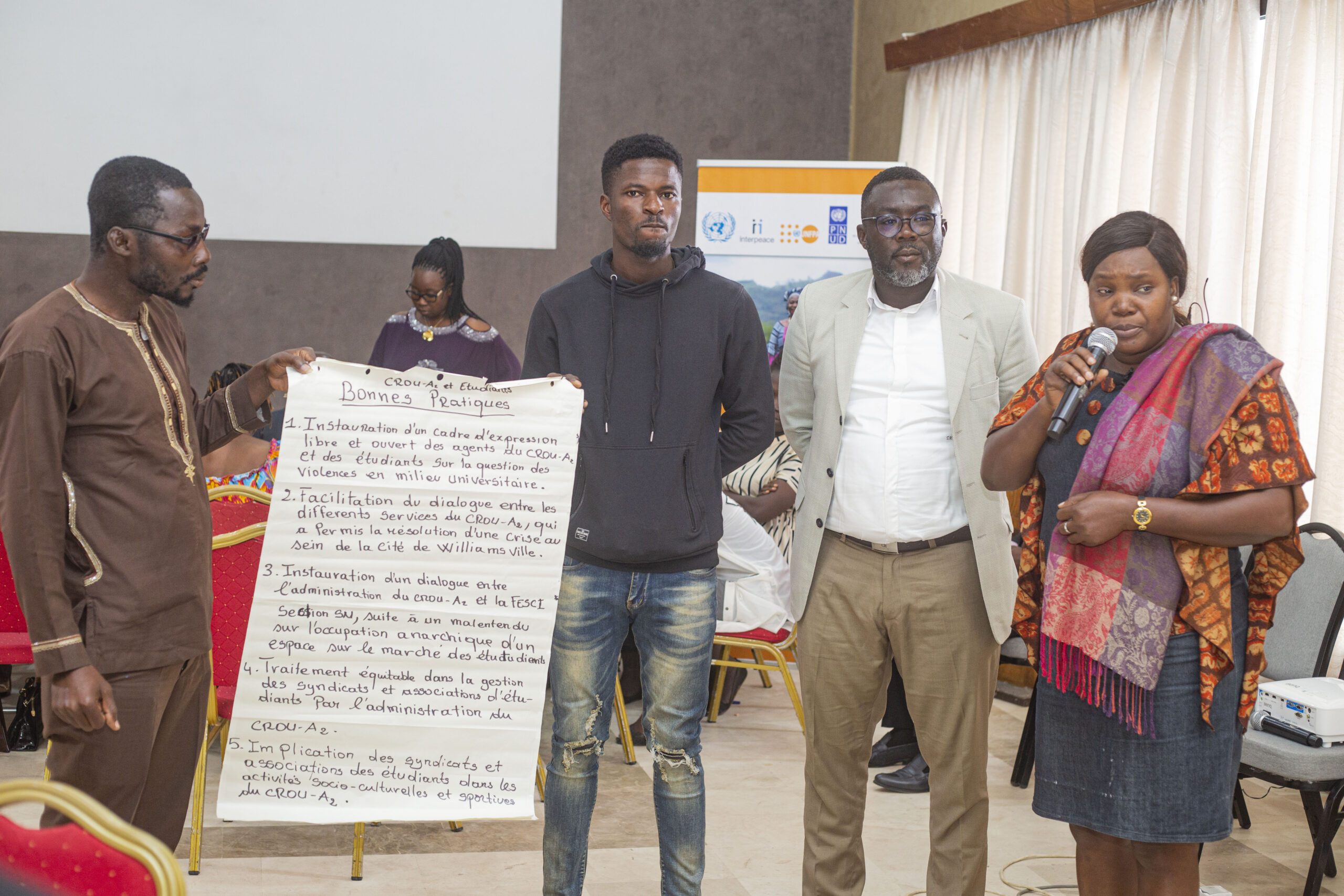Strengthening the political elite of tomorrow – Working with students to create safer environments in Côte d’Ivoire’s universities

Since the 1990s, the universities in Côte d’Ivoire have been greatly impacted by violence, particularly during electoral periods. This has created conflicts and tensions, which have influenced the dynamics of young people attending different schools. A joint initiative by the United Nations Population Fund (UNFPA), United Nations Development Programme (UNDP) and Interpeace, in partnership with Indigo Côte d’Ivoire, aims to help prevent and better manage conflicts in the university environments through participatory mechanisms that would develop a model of positive leadership, which will ultimately influence social peace and governance.
The initiative is funded by the United Nations Peacebuilding Fund (UNPBF) and is being piloted in three universities in Abidjan: Félix Houphouët-Boigny University, Nangui Abrogoua University and Alassane Ouattara University.

To better understand the sources of conflict and the dynamics of violence in these university spaces, Interpeace and Indigo Côte d’Ivoire facilitated a Participatory Action Research (PAR) process in 2021 with 1,366 students, teachers, members of administrative and technical staff from these universities. The consultations and dialogue sessions highlighted the resilience factors that can be collectively used to prevent and mitigate conflicts. Furthermore, the conclusions and recommendations from this participatory research process were used as a basis for the development of an action plan per university, which entails peace initiatives and the creation of a framework for inclusive exchange and dialogue between all university members.
In the beginning of August, a three-day workshop took place, where teachers, students and staff of the three universities came together to create a specific "road map" for the implementation of these initiatives that will foster safer and healthier environments on university campuses and strengthen the political elite of tomorrow. By supporting and strengthening students’ capacities to improve the prevention and management of conflict, the initiative will also contribute to reducing the factors that allow political parties to mobilize students for the purpose of political violence during electoral periods.
One of the student representatives at Alassane Ouattara University highlighted that the project had enabled participants to “improve consideration for certain actors”, who had previously been viewed negatively by students. A participant from Nangui Abrogoua University reflected on the significance of the project stating, "We are using words more than muscles". On the issue of strengthening ties and improving communication between university stakeholders, a professor highlighted the necessity for “collaboration between groups [stakeholders] that, so far, have not been speaking to one another”.
Indigo Côte d’Ivoire highlighted that this workshop “marked the first coming together of different university members from all three universities to collaborate and work towards a common goal”. UNFPA’s representative underlined that “the workshop was a significant step towards building and strengthening peace and cohesion on campuses through jointly designed and led actions”. Overall, participants warmly welcomed this opportunity and expressed their hopes to see considerable change take root on their campuses in the near future.
In order to build on the results of this workshop, Interpeace and Indigo Côte d’Ivoire will share the universities’ “road map” and detailed action plans with Côte d’Ivoire’s Ministry for Higher Education and Scientific Research, and will strive to provide support at the highest level to ensure that these efforts help pave the way forward so that the universities’ can become a peaceful haven of research, innovation and excellence.
